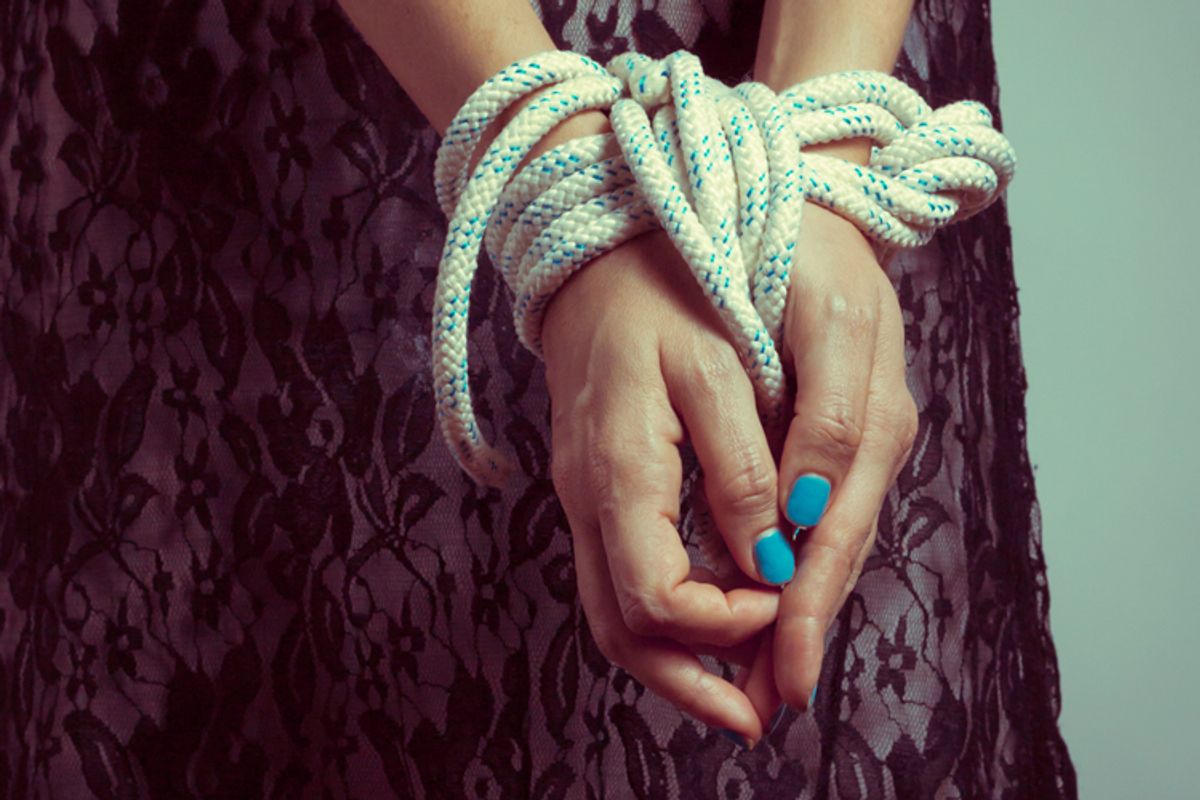It will soon be illegal to watch so-called rape porn in the United Kingdom, according to several news reports. Prime Minister David Cameron, who has already launched a massive anti-porn effort, is expected to make possession of such material punishable by up to three years in prison, the argument being that this explicit niche causes real-life harm to women and contributes to a culture of sexual violence.
Here is the thing: We aren't just talking about images that depict actual rape. We aren't just talking about videos that depict real-life crimes. The law will reportedly apply equally to videos of actual rape and simulated rape. That is to say: The U.K. will be making it a crime to watch pornographic material in which consenting adult performers enact a fantasy scenario of sexual assault. This could include anything from the lightest of power play and dominance to a staged man-with-a-ski-mask "rape" performed by, again, consenting adults.
In general, the BDSM scene, which deals in power play, is smarter about consent and negotiation than the vanilla world. As feminist writer Zoe Stavri wrote this summer in the Independent, "Within BDSM porn, there is often a short interview between the performers discussing what they would like to do, and what they would not like to do, and how they can signal that they want the scene to stop if need be," she said. "After the scene has finished, the performers talk about the scene in a debrief." Consent, communication and boundary-setting! That is the opposite of rape.
What's more, research shows that rape fantasies are common among women: Roughly four in 10 report having them. One study found that 52 percent of female respondents reported fantasizing about being "overpowered by a man." This does not mean that four in 10 or 52 percent of women want to be raped; it means that they have enjoyed the thought of being overpowered within the fantasyland of their own brains. That is the contradiction of rape fantasies: They represent a faux-violation, a powerlessness that is paradoxically controlled by the fantasizer.
As Daniel Bergner, author of "What Do Women Want?: Adventures in the Science of Female Desire," told me earlier this year, "The force of culture puts some level of shame on women's sexuality and a fantasy of sexual assault is a fantasy that allows for sex that is completely free of blame," he said. Another explanation, he said, "is this idea that the feeling of being desired is a very powerful one, a very electrical one. And I think at least at the fantasy level, that sense of being wanted, and being wanted beyond the man’s self-control, is also really powerful."
Male or female, a "rape" fantasy in and of itself does not make a person a rapist or a rape victim, or mean that he or she actually wants to rape or be raped.
This isn't just an issue of defending sexual expression and fantasy, though. As the Atlantic Wire reports, "The connection between actual real-life violence and porn is blurry at best -- India, which bans all forms of porn, has been in the news thanks to a rash of brutal rapes. Meanwhile, in the United States the incidence of rape declined 85 percent over a period of 25 years while access to pornography has increased."
When it comes down to it, this assault on fantasy won't prevent rape. In fact, it contributes to a culture in which consent is undervalued. It matters whether a video depicts a true crime or a simulated one; it matters whether it is a violation of a human being's bodily autonomy or a consensual exploration of a socially unacceptable fantasy. Consent matters -- and not just in its absence. It matters in the negative and the affirmative. It is a supreme irony that in allegedly trying to value freedom and self-determination, consent would be so casually and carelessly disregarded.



Shares